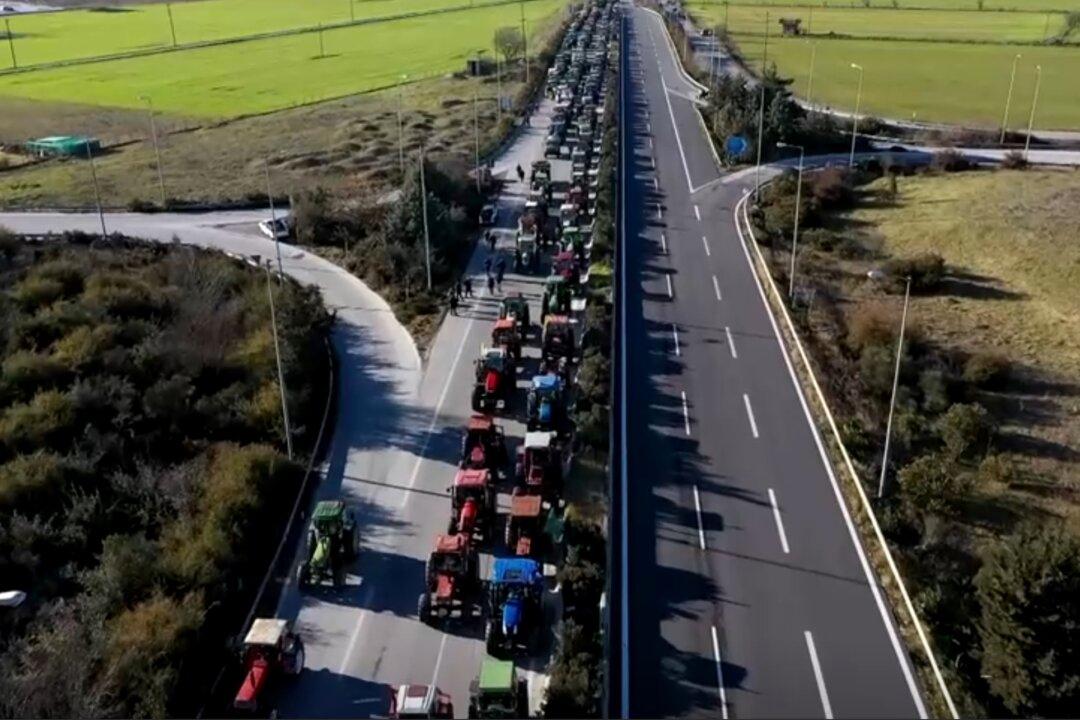Farmers in central Greece on Friday protested with hundreds of tractors on the national highway against soaring energy costs, dismissing government support measures, and demanding more help to fight rising prices.
Greece has spent about 1.7 billion euros ($1.95 billion) in subisidising power bills for farmers, households, and businesses to help them with rising energy prices.





